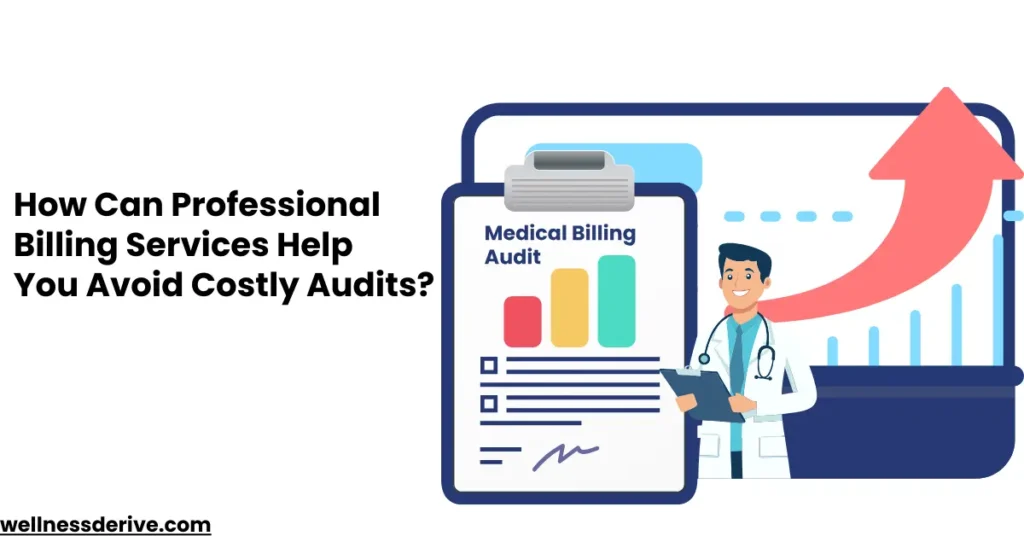Healthcare providers know that audits can lead to serious financial and reputational problems. Professional billing services help reduce the risk of costly audits by ensuring claims are submitted accurately and in compliance with the latest regulations. Using experienced teams and proven processes, these services help practices avoid common errors that can trigger unwanted scrutiny.
By outsourcing medical billing services, clinics benefit from fewer denied claims and improved cash flow. Expert billing professionals use updated coding guidelines and double-check submissions, making it easier to catch mistakes before they become audit risks.
Staying audit-ready doesn’t have to be overwhelming. Professional billing support helps healthcare practices stay compliant with industry standards and operate more confidently.
Key Takeaways
- Audits in healthcare can be costly and disruptive
- Expert billing services help minimise audit risk
- Proper billing boosts accuracy and protects revenue
Risks of Costly Audits in Healthcare Billing
Healthcare providers face significant risks when audits reveal problems in their billing practices. These issues can result in financial losses, strained patient relationships, and damage to a facility’s credibility.
Common Compliance Issues
Compliance with federal, provincial, and private payer regulations is vital. Common compliance issues include improper use of diagnosis codes, missing documentation, and billing for services not rendered. Errors often arise when coding does not adhere to current coding standards or when staff are unfamiliar with regulatory changes.
Healthcare organisations may neglect routine training, resulting in outdated billing methods. For example, failure to update coding for new treatments or changes in guidelines can trigger an audit. In rare cases, intentional upcoding or unbundling is the cause, which increases the risk of fraud investigations.
Inconsistent documentation and discrepancies between charts and claims further contribute to compliance risks. This exposes providers to increased scrutiny from regulatory agencies and third-party payers.
Causes and Impact of Medical Billing Errors
Medical billing errors are frequently traced to data entry mistakes, misunderstanding of coding rules, or the use of outdated software. Inexperienced billing staff, high claim volumes, or insufficient oversight can make these problems worse.
Common mistakes include incorrect patient information, omitted procedure codes, or submitting duplicate claims. These errors can result in claim denials or delayed reimbursements. Hospitals and clinics dealing with frequent claim denials experience workflow disruption and staff overload.
A regular medical billing audit can help identify patterns in errors before they escalate. For example, a provider that reviews its claims process can reduce errors and minimize the risk of audits. Accurate billing also lowers the likelihood of disputes with insurers and patients.
Financial and Reputational Consequences for Providers
Audit findings often lead to serious financial repercussions. Penalties for non-compliance, repayment demands, or legal action may follow a failed audit. Hospitals and clinics can lose a portion of their revenue due to denied claims and reimbursement takebacks.
Beyond the immediate costs, providers can suffer lasting reputational harm. News of compliance failures spreads quickly, and trust with patients, insurers, and regulatory bodies is eroded. This can result in fewer referrals and damaged business relationships.
Hospitals and healthcare providers must be proactive to avoid compliance pitfalls. Routine audits, transparent billing practices, and prompt correction of errors are essential to maintaining both financial health and public trust.
How Professional Billing Services Prevent Audits
Professional medical billing services reduce risks of costly audits by improving billing accuracy, leveraging modern technology, and ensuring claims are submitted and managed with rigorous attention to detail. These approaches help healthcare providers stay compliant while also increasing revenue and reducing operational costs.
Ensuring Accurate Billing and Coding Practices
A reliable medical billing company carefully checks every claim for coding accuracy. By applying updated billing and coding standards, these services lower the risk of non-compliance with insurance companies, Medicare, or other payers.
Regular internal audits are used to detect potential errors in documentation and coding before claims are sent. These audits help ensure claims meet payer requirements, reducing rejections and minimizing the chances of being flagged for an external audit. Staff undergo frequent training on new regulatory requirements, maintaining high compliance and quality standards.
Accurate coding directly impacts reimbursement rates and protects healthcare providers from accidental overpayments or underpayments. With attention to documentation and coding details, professional services help sustain healthy revenue cycle management.
Implementing Advanced Technology and Billing Software
Leading billing services use advanced technology and automated billing software to streamline nearly all aspects of the billing process. These systems rely on tools like machine learning to flag inconsistencies, duplicate records, or problematic documentation.
Modern billing software reduces human error by automating claim creation, verification, and payment posting. Features such as real-time reporting and analytics allow users to identify trends and make adjustments quickly. This supports precise billing and keeps providers up-to-date with evolving compliance standards.
Operational costs are often reduced because automation minimizes the time and labour spent on manual checks. Technology-driven billing processes provide a strong layer of defence against errors that might trigger costly audits.
Conclusion
Professional billing services use established processes to help healthcare providers reduce the risk of costly audits. Regular billing audits can catch errors early, allowing practices to resolve issues before they raise concerns with payers or regulators. These services also improve documentation accuracy and help ensure compliance with current regulations.
Disclaimer: The content on Wellness Derive is for informational purposes only and not a substitute for professional medical advice, diagnosis, or treatment. Always consult a healthcare provider for medical concerns.



